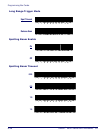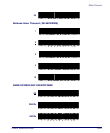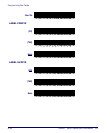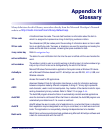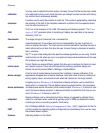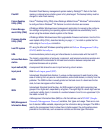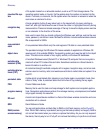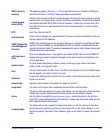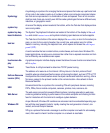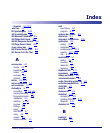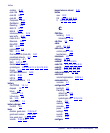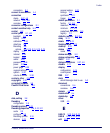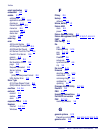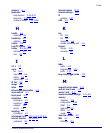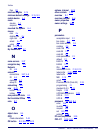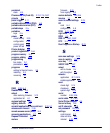
Glossary
H-6
Falcon
®
4400 Series with Windows
®
CE
Symbology
A symbology is a protocol for arranging the bars and spaces that make up a particular kind
of bar code. A bar code is made up of numbers, letters, and computer-recognized charac-
ters that can be represented in a combination of bars and spaces. There is not one stan-
dard bar code; there are currently over 400 bar code symbologies that serve different uses,
industries, or geographic needs.
system tray
An area of the display screen located at the bottom, within the Task bar that displays status
icons and symbols.
system tray key-
board Indicators
The System Tray Keyboard Indicators are located at the bottom of the display in the
task
bar
and contain status icons and symbols indicating open features and active applets.
task bar
The Task bar at the bottom of the screen displays the
start icon, an icon for the active pro-
gram, an icon for the current character, the current time, and system icons for utilities
loaded in memory, including the keyboard icon, which opens and closes the
soft input
panel (SIP)
.
toolbar
A control window that can contain buttons, combo boxes, and menu bars. Windows CE–
based applications can also use a command bar rather than a separate menubar and tool-
bar to efficiently use available screen space.
touchscreen dis-
play
A graphical computer interface display screen that allows the user to enter and select items
with a
stylus.
Tracert Trace Route. A utility/command to determine TCP/IP packet routing.
Uniform Resource
Locator (URL)
The address of a resource on the Internet. URL syntax is in the form protocol://host/
localinfo, where protocol specifies the means of returning the object, such as HTTP or FTP.
Host specifies the remote location where the object resides and localinfo is a string, often a
file name, passed to the protocol handler at the remote location. Also called a Uniform
Resource Identifier.
USB
Universal Serial Bus is a protocol for connecting PCs with peripheral devices, including
PDTs, PDAs, Falcon mobile computers, cameras, printers, mice, scanners, etc.
Web Server
The web server can perform several different actions, including generating a web page
containing statistics relating to performance of the mobile computer and creating an inter-
face for interaction with the terminal to configure system behavior.
Windows CE
As per Microsoft, Windows CE combines an advanced real-time embedded operating sys-
tem with the most powerful tools for rapidly creating the next generation of smart, con-
nected, and small-footprint devices.
XPING
XPing is a protocol that sends a message to another computer and waits for acknowledg-
ment, often used to check if another computer on a network is reachable.



